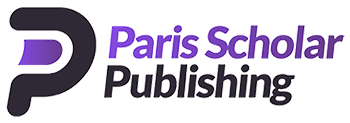An Open Access article published in the Health Behavior and Policy Review Journal.
The full article is available as a PDF download.
Authors:
Leslie Bloom, MS
Leily Saadat-Lajevardi, MSEd, MBA
Andrew Myers, MD
Mary Kathryn Malone, MEd, MBA
Brenda Zimmerman, MS
Objective:
OTC Medicine Safety, a free, easily accessible, in-classroom educational program available through Young Minds Inspired (https://ymiclassroom.com/lesson-plans/otcmedsafety), was developed to improve adolescents’ knowledge of safe use of medicines. In a proof-of-concept study, students increased knowledge about safe, appropriate use of over-the-counter (OTC) medicines. In this study, we assessed whether the OTC Medicine Safety program effectively increased students’ knowledge and if students retained this knowledge over time.
Methods:
We measured student knowledge before implementation (baseline, Quiz 1) immediately after implementation (Quiz 2), and 10 weeks after baseline (Quiz 3) in 3 test schools. We measured knowledge at similar intervals in 3 control schools (no program implementation).
Results:
Baseline knowledge was low (average 39.3% of 36 questions answered correctly). Among intervention schools, scores significantly improved immediately (average correct 62.9%) after implementation and were retained at 10 weeks (59.8%) (p < .001). Change in score from baseline among intervention schools immediately after the lesson implementation was significantly higher than corresponding changes from baseline among control schools (intervention: +23.0 vs control: -3.2) and at 10 weeks (intervention: +19.9 vs control: -2.9), p < .001.
Conclusions:
The OTC Medicine Safety Program effectively improved students’ knowledge of safe medicine-taking practices and students retained this knowledge at 10 weeks.
Source: Health Behavior and Policy Review, Volume 9, Number 6, November 2022, pp. 1128-1139(12)
Publisher: Paris Scholar Publishing Ltd.
DOI: https://doi.org/10.14485/HBPR.9.6.5
